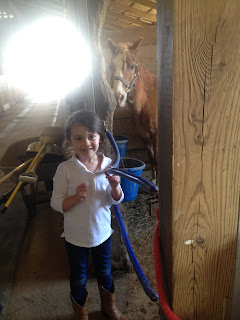This is not just for autism moms, or working moms, or stay-at-home moms. This is for ALL moms. I've been where you are right now. Not just once, but many times, and for extended periods (2+ years at the very least). I gave birth to my daughter (my oldest) in a room with my mother, grandmother, and two very best friends. It was one of the darkest, yet best, days of my life. I raised my daughter by myself until she was nine months old. Her father and I got back together and a year later, I was pregnant with my son. When I was seven months pregnant, I found myself single yet again. I have raised both of them by myself ever since. Believe me when I tell you, it was not easy. And by not easy, I mean nearly impossible. When I used to think of single moms, I thought "I'm sure that's kinda hard." Wow, did I underestimate just how hard it would be. I had no idea. I was at my lowest point when my son was just under a year old. I was exhausted, sleep-deprived, lonely, depressed, anxious, distraught. You name it, I probably went through it at one point or another. I think I had post-partum depression, but how could I really distinguish that from everything else I was feeling?? It was all a blur. The bad news is that I have very few good memories of the first few years of my children's lives. I was operating in survival mode. My memories are vague. I remember crying a lot; not exactly how I pictured becoming a mother. I won't go into receiving my kids' autism diagnoses when they were two and four years old. That was an entirely different adjustment.
However, the good news is that all of that is in the past and I have moved on. This year I took it upon myself to get healthy. And not in a physical way (although I recommend that too). I started seeing a therapist. I found a primary care physician for the first time in 5+ years. I started on minimal medication. I started doing yoga and meditating regularly. I started reading self-help books (about things other than being a mom). I started going out with friends occasionally. I bought a guitar. Do I plan on going on tour anytime soon? Of course not, but it's something I've always loved so I am letting myself indulge in seemingly silly things sometimes. I can tell you right now that if I can get myself to a mentally healthy place, you can too. You just have to start setting some time aside for yourself to TAKE CARE OF YOURSELF. Believe me, when you achieve this, you will be able to take much better care of your family. So find a hobby, schedule a night out with your friends once a month, go get a massage or your hair done, get your finances in order, put your kids to bed an hour earlier so you can watch what you want to watch on Netflix, take up that hobby you've always been dying to do (even if you think it will not lead to anything). There are so many ways to take care of yourself and to give yourself that feeling of hope and independence you once had. Just because we become moms does not mean you should lose sight of yourself entirely. Because one day our kids will be grown. And when that day comes, you need to know who you are. So go out and find yourself.
Mindsight by Daniel Siegel


































